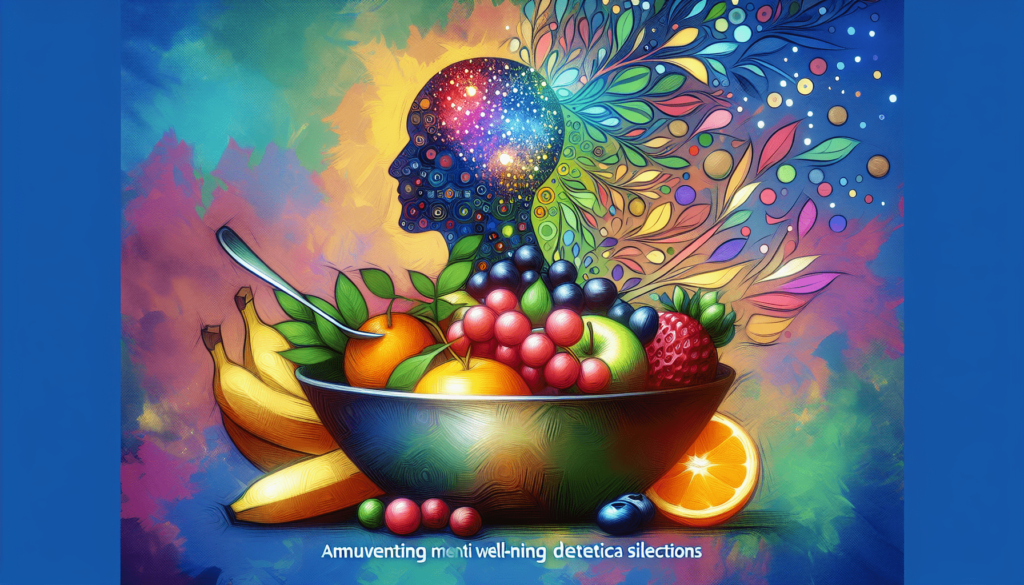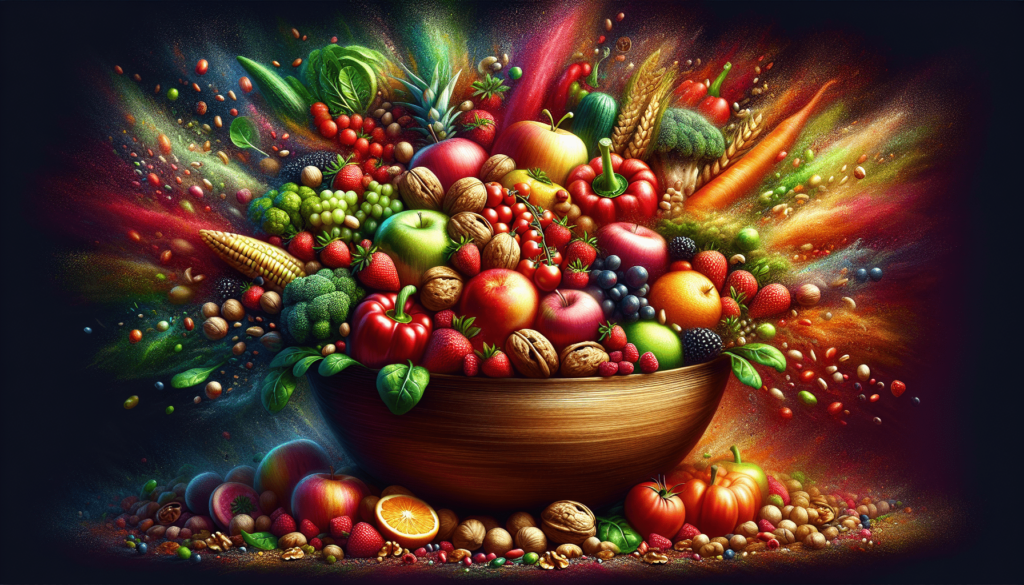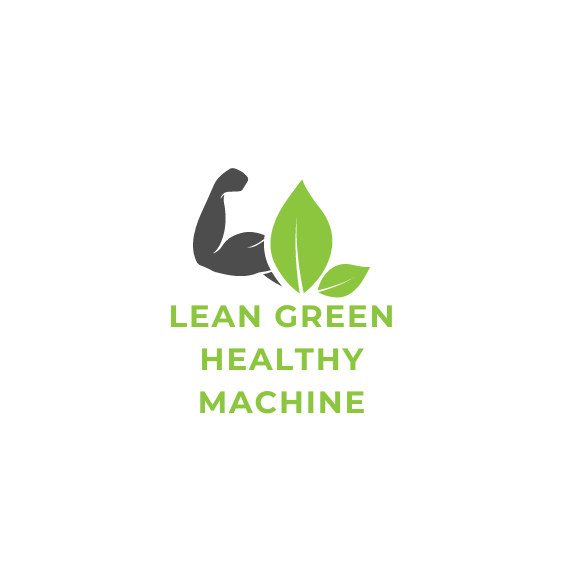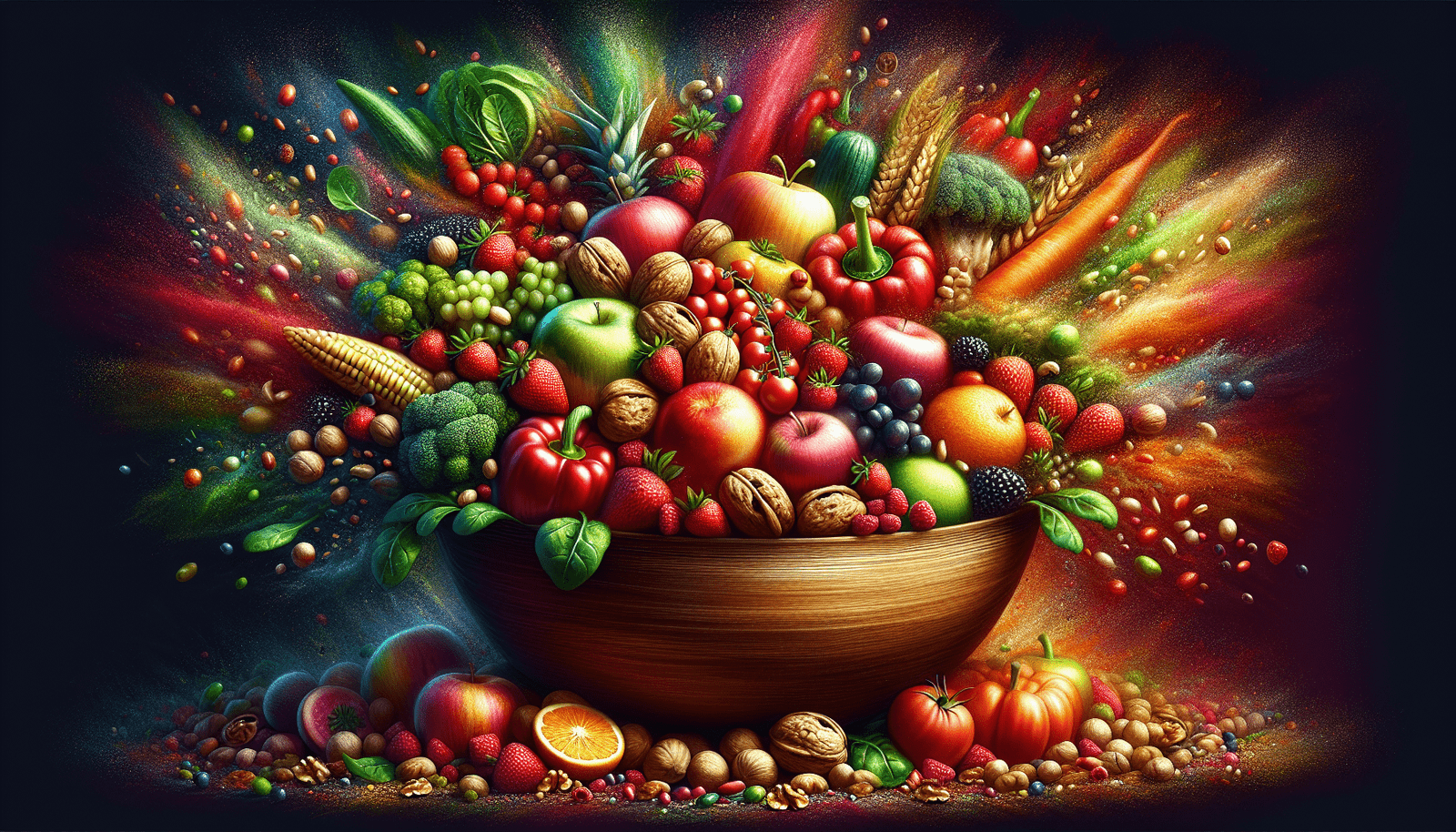In the world of holistic wellness, the connection between food and our mental wellbeing is a fascinating subject worth exploring. This article dives deep into the power of nutrient-rich superfoods and their potential to combat depression and boost our mood. From salmon and blueberries to leafy greens, we uncover the secrets of these heroes and how they can improve our brain health, aid digestion, and even fight heart issues. Through this exploration of food choices and their impact on mental health, you’ll be empowered to make informed decisions, reduce stress, and enhance your overall wellbeing. So, grab a healthy snack and get ready to embark on a journey towards a happier, more vibrant life. In the vibrant world of healthy living, where food becomes your medicine and prevention plays a starring role, it’s important to understand the power of nutrient-rich superfoods. These foods are not only delicious but also have the potential to combat various health issues and improve mental wellbeing. In this article, we will delve into ten different categories of foods that are known to boost your mood and help fight depression. So let’s explore the wonders of these foods and unlock a future brimming with vitality!

1. Omega-3 Fatty Acids
Fatty Fish
When it comes to omega-3 fatty acids, fatty fish like salmon, tuna, and sardines are on the top of the list. These fish are rich in eicosapentaenoic acid (EPA) and docosahexaenoic acid (DHA), two types of omega-3 fatty acids that have been linked to improved mental health. Regular consumption of fatty fish can help reduce symptoms of depression and anxiety.
Flaxseeds
If you’re looking for a plant-based source of omega-3 fatty acids, flaxseeds are an excellent option. These tiny seeds are packed with alpha-linolenic acid (ALA), which can be converted into EPA and DHA in the body. Adding flaxseeds to your diet can support brain health and contribute to a positive mood.
Chia Seeds
Similar to flaxseeds, chia seeds are rich in ALA and provide a plant-based source of omega-3 fatty acids. These versatile seeds can be sprinkled on smoothies, added to oatmeal, or used in baking to boost your omega-3 intake and support mental wellbeing.
Walnuts
Walnuts are not only a delicious snack but also a great source of omega-3 fatty acids. They contain ALA and have been shown to reduce symptoms of depression and improve overall brain health. Including a handful of walnuts in your daily diet can have a positive impact on your mood.
2. Complex Carbohydrates
Whole Grains
Whole grains such as brown rice, quinoa, and whole wheat bread are excellent sources of complex carbohydrates. These carbohydrates provide a steady release of energy and help regulate blood sugar levels, which can contribute to overall mood stability. Including whole grains in your diet can help combat mood swings and promote a sense of wellbeing.
Legumes
Legumes like lentils, chickpeas, and black beans not only offer a good source of plant-based protein but also contain complex carbohydrates. These carbohydrates provide a slow and steady release of energy, preventing spikes and crashes in blood sugar levels. Incorporating legumes into your meals can help stabilize your mood and improve mental wellbeing.
Quinoa
Quinoa is not only a complete source of protein but also a rich source of complex carbohydrates. This ancient grain contains all nine essential amino acids and provides a slow-burning source of energy, making it an ideal choice for stabilizing mood and promoting mental health.
Sweet Potatoes
Sweet potatoes are not only a delicious and nutritious staple but also a great source of complex carbohydrates. They have a lower glycemic index compared to regular potatoes, which means they release sugar into the bloodstream more slowly. This steady release of energy can promote stable mood and prevent mood swings.
3. Serotonin-Boosting Foods
Bananas
Bananas are known for their high potassium content, but they are also a great source of tryptophan. Tryptophan is an amino acid that contributes to the production of serotonin, a neurotransmitter that helps regulate mood and promote feelings of happiness. Including bananas in your diet can help boost serotonin levels and improve your overall mood.
Pineapple
Pineapple contains an enzyme called bromelain, which has been linked to increased serotonin production. This tropical fruit is not only delicious but also contributes to a positive mood. Enjoying fresh pineapple or adding it to your smoothies can be a great way to boost your serotonin levels naturally.
Kiwi
Kiwi is packed with vitamin C, which has been shown to increase serotonin levels in the brain. This fuzzy fruit also contains other essential nutrients like folate and antioxidants, making it a great addition to your diet for improved mental wellbeing.
Tomatoes
Tomatoes are not only a versatile and tasty ingredient but also a fantastic source of lycopene and other antioxidants. Lycopene has been linked to a reduced risk of depression and can contribute to elevated mood. Enjoying tomatoes in salads, sauces, or even as a snack can provide you with a natural serotonin boost.
4. Antioxidant-Rich Foods
Berries
Berries like blueberries, strawberries, and raspberries are packed with antioxidants that can help fight inflammation and protect brain cells from damage. Including a variety of berries in your diet can support brain health and contribute to a positive mood.
Dark Chocolate
Yes, you read it right! Dark chocolate, specifically those with a high cocoa content, is rich in antioxidants and can have a positive impact on mood. The flavonoids in dark chocolate have been shown to increase blood flow to the brain and improve cognitive function. So indulge in a piece of dark chocolate to satisfy your sweet cravings and boost your mood.
Green Tea
Green tea is not only a refreshing beverage but also a great source of antioxidants. It contains compounds like catechins and polyphenols, which have been linked to improved mental wellbeing and reduced symptoms of depression. Swap your regular cup of tea or coffee with a soothing cup of green tea to reap the benefits.
Turmeric
Turmeric is a yellow spice commonly used in Indian cuisine and is known for its anti-inflammatory properties. It contains a compound called curcumin, which has been studied for its potential in reducing symptoms of depression. Adding turmeric to your meals or enjoying a warm cup of turmeric tea can contribute to improved mental health.

5. Probiotic Foods
Yogurt
Yogurt is a well-known source of probiotics, which are beneficial bacteria that support gut health. Studies have shown a strong connection between gut health and mental wellbeing, with probiotics playing a role in reducing symptoms of depression and anxiety. Including yogurt in your daily diet can help improve your gut microbiome and contribute to a positive mood.
Sauerkraut
Sauerkraut is a fermented cabbage dish that is rich in probiotics. These beneficial bacteria promote a healthy gut and have been linked to improved mental health. Including sauerkraut as a side dish or topping can provide you with a dose of probiotics and support your overall wellbeing.
Kombucha
Kombucha is a fermented tea that contains probiotics and has gained popularity in recent years. This fizzy drink not only refreshes your taste buds but also supports a healthy gut. Incorporating kombucha into your routine can help balance your gut microbiome and improve your mental health.
Kimchi
Kimchi is a traditional Korean dish made from fermented vegetables and is packed with probiotics. This spicy and tangy side dish is not only flavorful but also great for your gut health. Adding kimchi to your meals can support a healthy gut microbiome and contribute to improved mental wellbeing.
6. Vitamin D Sources
Sunshine
The most natural and enjoyable way to increase your vitamin D levels is by exposing your skin to sunlight. Spending time outdoors under the sun can help your body produce vitamin D, which plays a crucial role in mental health. Aim for around 10-15 minutes of sun exposure, preferably in the morning or late afternoon, to boost your mood.
Fatty Fish
In addition to being an excellent source of omega-3 fatty acids, fatty fish like salmon, mackerel, and trout are also rich in vitamin D. Including these fish in your diet can help you meet your daily vitamin D requirements and support overall mental wellbeing.
Egg Yolks
Egg yolks are another good source of vitamin D. They also contain choline, a nutrient that supports brain health. Including eggs in your diet, whether in a breakfast omelet or as an ingredient in baking, can provide you with a natural source of vitamin D.
Mushrooms
Certain types of mushrooms, such as shiitake and maitake, are unique because they can naturally produce vitamin D when exposed to sunlight. Including mushrooms in your meals, whether sautéed, grilled, or added to soups and stews, can be a great way to boost your vitamin D levels.
7. Magnesium-Rich Foods
Spinach
Spinach is a nutrient-packed leafy green vegetable that is a great source of magnesium. Magnesium has been shown to play a role in reducing symptoms of depression and anxiety. Including spinach in salads, smoothies, or cooked dishes can provide you with a natural source of magnesium and support mental wellbeing.
Almonds
Almonds are not only a tasty and convenient snack but also a good source of magnesium. These nuts have been linked to improved brain function and mood regulation. Adding a handful of almonds to your daily snacks or incorporating them into your meals can contribute to a positive mood.
Avocado
Avocado is known for its healthy fats and is also a great source of magnesium. This creamy fruit can help support brain health and contribute to stable mood. Enjoying avocado on toast, in salads, or as a guacamole dip can provide you with a natural source of magnesium.
Black Beans
Black beans are a staple in many cuisines and are an excellent source of magnesium. These legumes not only provide plant-based protein but also contribute to mental wellbeing. Adding black beans to your soups, salads, or Mexican-inspired dishes can be a tasty way to boost your magnesium intake.
8. Zinc Sources
Beef
Beef is a rich source of zinc, an essential mineral that plays a role in brain health and mood regulation. Including lean cuts of beef in your diet, whether grilled, roasted, or added to stir-fries, can provide you with a natural source of zinc.
Oysters
Oysters are one of the best sources of zinc, providing you with a highly absorbable form of this essential mineral. These shellfish are not only a delicacy but also support mental wellbeing. Enjoying oysters on special occasions or as a treat can give you a significant boost of zinc.
Pumpkin Seeds
Pumpkin seeds are a popular snack and a great source of zinc. These tiny seeds are also rich in other essential nutrients like magnesium and omega-3 fatty acids. Including pumpkin seeds in your diet, whether as a topping on salads or as a snack on their own, can provide you with a natural source of zinc.
Chickpeas
Chickpeas, also known as garbanzo beans, are not only versatile but also a good source of zinc. These legumes are packed with fiber, protein, and other essential nutrients. Incorporating chickpeas into your meals, whether in hummus, curries, or salads, can support mental wellbeing by providing you with a natural source of zinc.
9. Vitamin B-12 Foods
Shellfish
Shellfish, such as clams, mussels, and oysters, are rich in vitamin B-12. This essential vitamin plays a crucial role in brain health and the production of neurotransmitters that regulate mood. Including shellfish in your diet can help ensure you meet your vitamin B-12 requirements and support mental wellbeing.
Fortified Cereals
Many breakfast cereals are fortified with vitamin B-12, making them a convenient source of this essential vitamin. Starting your day with a bowl of fortified cereal, topped with berries and milk or yogurt, can provide you with a natural source of vitamin B-12 and contribute to improved mental health.
Soy Milk
Soy milk, derived from soybeans, is often fortified with vitamin B-12. This plant-based milk alternative can be a great option for individuals following a vegetarian or vegan diet. Enjoying a glass of soy milk as a beverage or incorporating it into your smoothies and recipes can provide you with a natural source of vitamin B-12.
Cheese
Certain types of cheese, such as Swiss cheese and mozzarella, are good sources of vitamin B-12. Including cheese in your meals or snacks can provide you with a natural source of this essential vitamin and support mental wellbeing.
10. Tryptophan-Rich Foods
Turkey
Turkey is well-known for its high tryptophan content. Tryptophan is an essential amino acid that the body uses to produce serotonin, a neurotransmitter that regulates mood. Including turkey in your meals, whether roasted, grilled, or added to sandwiches, can provide you with a natural source of tryptophan and contribute to a positive mood.
Chicken
Chicken is another protein-rich meat that contains tryptophan. Including chicken in your diet can help boost your tryptophan intake and support mental wellbeing. Incorporating chicken into your meals, whether in soups, stir-fries, or salads, can be a tasty way to elevate your mood naturally.
Pumpkin Seeds
Pumpkin seeds, in addition to being a good source of zinc, are also rich in tryptophan. These seeds can be enjoyed as a snack on their own or added to salads, granola, or baked goods to increase your tryptophan intake and support mental health.
Milk
Milk is a natural source of tryptophan and is known to promote sleep and relaxation. Including a warm glass of milk in your nightly routine can contribute to a positive mood and improved mental wellbeing.
By incorporating these foods into your diet, you can support your mental health and combat depression naturally. Remember, food is not the sole solution for mental health issues, but it can play a crucial role in supporting your overall wellbeing. So make these nutrient-rich foods a part of your daily routine and embark on a journey of stress reduction, inflammation control, and mood-boosting nutrition.

